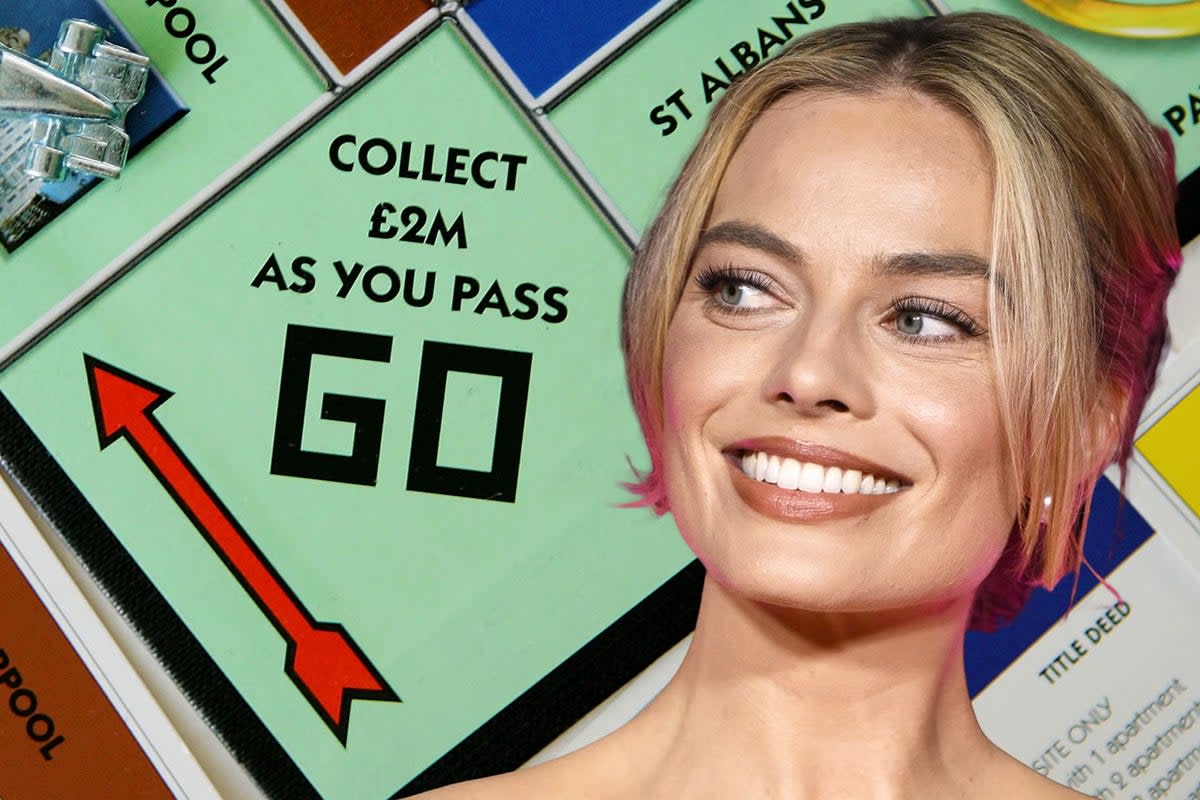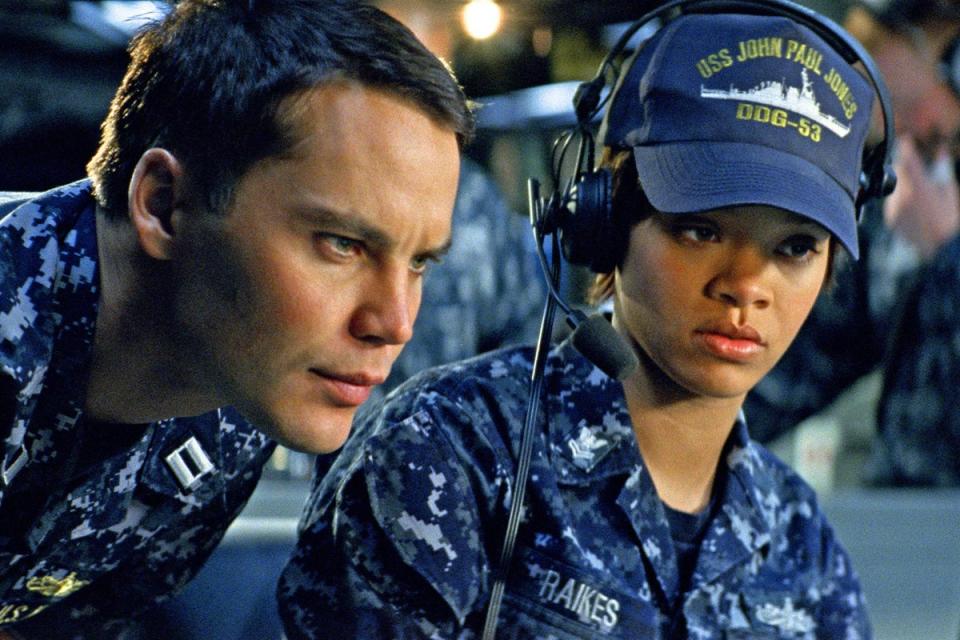Go directly to movie jail: Margot Robbie’s Monopoly film is a very depressing idea

- Oops!Something went wrong.Please try again later.
What should we expect from Margot Robbie’s Monopoly movie? Metaphors for the evils of capitalism? Dastardly landlords waging war on young renters? Emerald Fennell as a gender-flipped Mr Moneybags? The possibilities are endless. And chilling.
Announced overnight, Robbie’s Monopoly will be a live-action take on the classic board game, and a collaboration between Lionsgate, the toymakers at Hasbro, and Robbie’s production company LuckyChap. It’s another bold play by Robbie following Barbie last year, a movie that proved that a universally recognisable brand can be mined for creative potential, score a raft of Oscar nominations, and make buckets and buckets of cash.
But also: sigh. Monopoly joins a glut of toys currently being pulled from shelves and tossed onto multiplex screens, from a “grounded and gritty” take on Hot Wheels from JJ Abrams, to Lena Dunham and Lily Collins’ Polly Pocket collab, to a Rock ’Em Sock ’Em Robots film starring Vin Diesel.
It was, inevitably, always going to be this way. Toy companies like Mattel and Hasbro have been thumbing through their products for years now in the hopes of turning them into films, spurred on by Lego’s various successful forays onto the big screen – 2014’s The Lego Movie drove up sales by 13 per cent – and further encouraged by Barbie’s global domination.
The lesson learnt from the film’s success wasn’t, seemingly, that audiences are drawn to novelty and surprise on screen, or that singular filmmakers like Greta Gerwig should be entrusted with big budgets and the creative freedom to do whatever they like with them, or even that we appreciate female-driven narratives. Rather, the lesson seems to be that people want to see things they recognise – films as nostalgia bait. And toys. Lots and lots of toys.
It’s a bizarre assumption, given that Barbie is very much an anomaly when it comes to hit toy movies. Twelve years ago, Hasbro produced Battleship, a bafflingly ugly-looking movie based on the popular board game. It had aliens in it, and Rihanna, and Taylor Kitsch, the hottest leading man in Hollywood for about six months in 2011. It also (...I had to do it) sank at the box office, losing Universal Pictures and Hasbro $150m (£120m) in the process.
Then there was 1985’s Cluedo, a more faithful adaptation of its board-game source material than whatever Battleship was, but a box office failure and a creative and comic wasteland all the same. (While some people claim that the movie, starring the likes of Tim Curry and Christopher Lloyd, is a secret classic, rest assured – these people are wrong.)
Meanwhile, board-game movies that actually do work well are those that have taken inspiration from the spirit of board games rather than their specifics. Think Jumanji or the Jason Bateman/Rachel McAdams comedy Game Night, both of which zip along with the comic tension and adventure that anyone will recognise from a few hours playing Risk.

Robbie’s Monopoly movie, it should be said, may not be a total wash. She is a very, very smart film producer, with a great knack for finding scripts that claw their way into cultural discourse and become bona fide events. Both of her films with Fennell – the 2020 rape-revenge thriller Promising Young Woman and last year’s class satire Saltburn – were swill, but they were inescapable swill, fine-tuned to be polarising and argued over. In the pipeline is an adaptation of Ottessa Moshfegh’s grimy bestseller My Year of Rest and Relaxation that will inevitably break people’s brains, and at least two movies to be directed by Olivia Wilde – a walking thinkpiece if ever there was one.
If anyone can turn Monopoly into a film that people actually want to see – then talk about, and despise or embrace – it’s Robbie. But I do question what she sees in the brand beyond its name. Like the video game The Sims, which Robbie is also turning into a movie via her production company, Monopoly lacks the central pull that has always defined the work she’s brought to the screen as a producer.
Speaking to Deadline earlier this year, Robbie discussed the strong opinions that surround Barbie as an entity, as well as the disgraced figure skater Tonya Harding – who she played in the 2017 movie I, Tonya. “Audiences [had] a built-in perspective of our protagonist before they sat down and watched it,” she said of the latter film. “That’s a really interesting place to start to share an experience with an audience.”
That tension fuels both of the movies Robbie ended up making, and feeds into the divisive responses to her collaborations with Fennell. All of it has paid off in spades, too. Where, though, is that inherent polarisation when it comes to Monopoly? Unless you’re a bit weird, does anyone even have a strong opinion about it, other than that it always goes on a bit too long?
More than anything, I can’t help but feel underwhelmed by the prospect. The news of Robbie’s Monopoly movie broke in the same week that Francis Ford Coppola’s new, self-funded Megalopolis reportedly turned off potential buyers at a secret screening in Los Angeles. John Waters also said in an interview this week that he’s struggling to get a new film off the ground, and David Lynch revealed that Netflix rejected one of his recent feature pitches.
Are we really OK to exist in a world in which studios boast of the franchise potential of something you played with when you were eight, but our greatest living auteurs can’t get their work financed? If so, perhaps it’s only a matter of time before Waters’ Hungry Hungry Hippos comes to a cinema near you.

